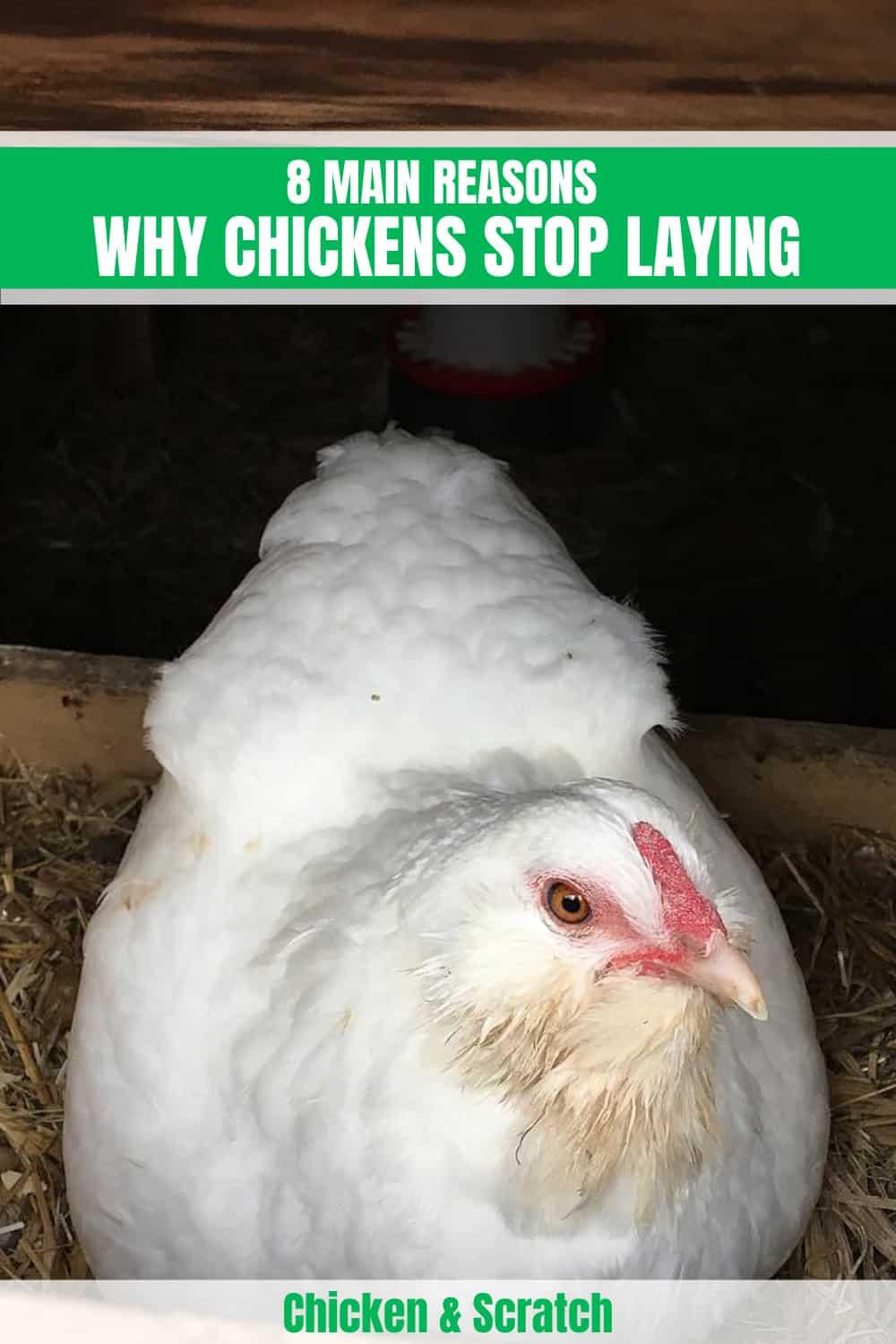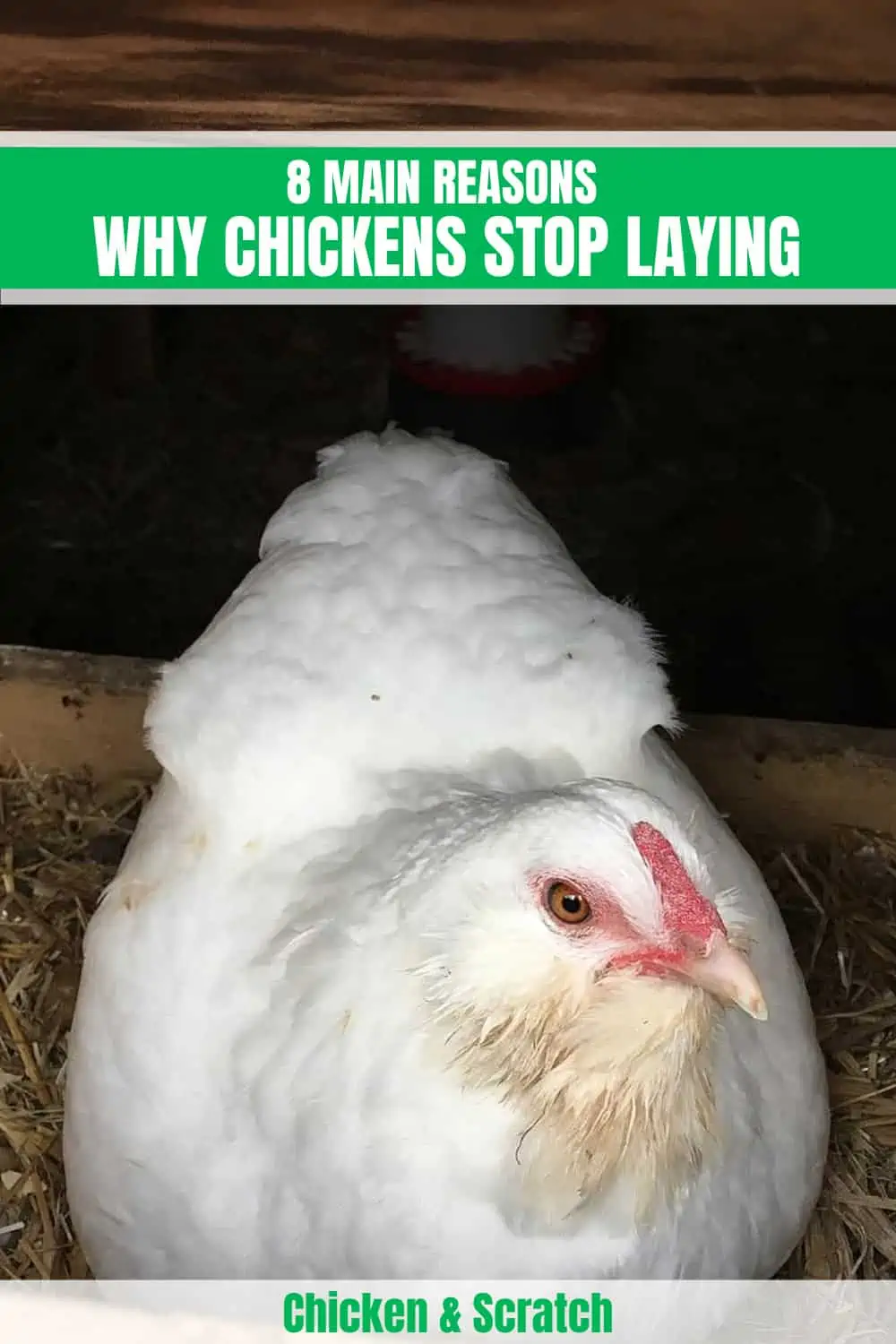Why have your chickens stopped laying eggs? There are many reasons why this could be happening. I used to worry when I would go to my coop for my breakfast eggs and find the nesting boxes empty.
Do you ever wonder why there are fewer eggs in your coop? Are you worried about the health of your chickens? Sometimes, natural cycles cause a downturn in production. But most of the time, there are plenty of things you can do to encourage your chickens to lay more tasty eggs.
When the right age and conditions are met, chickens usually lay one egg every 24 hours or so. If your chickens are laying less often, read on to find out what you can do to change that.
Are your chickens getting enough sunlight?
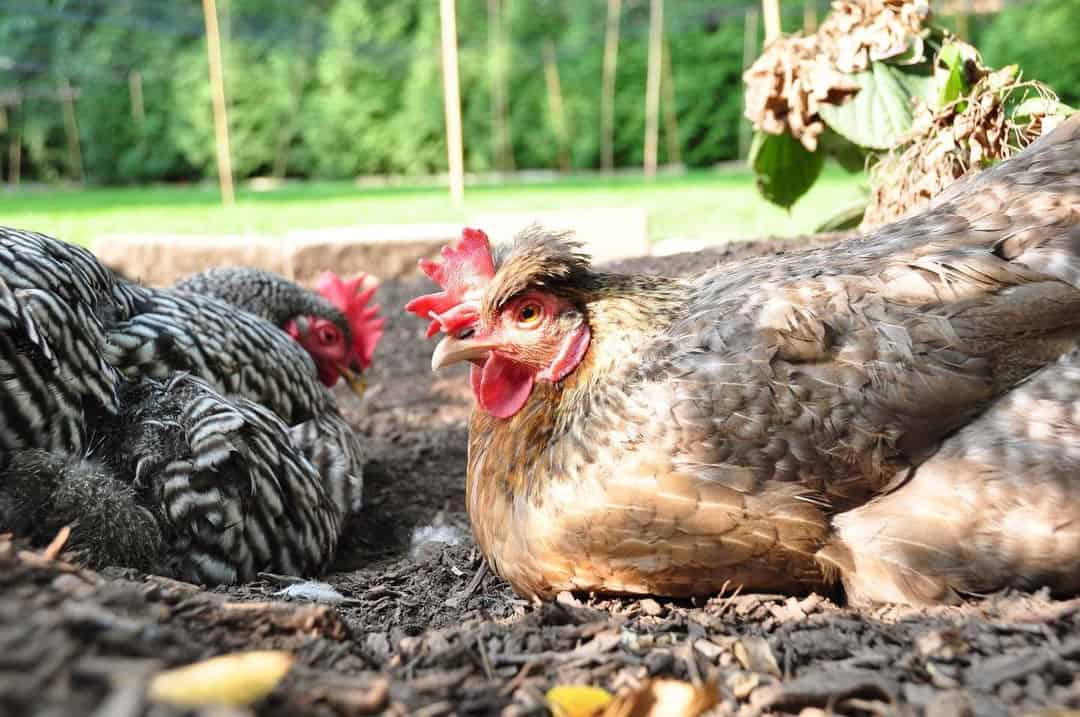
It’s easy to forget that chickens are birds that have natural cycles. They do not lay eggs consistently throughout the year. Chickens have glands near their eyes that are receptive to sunlight. Your girls will only lay eggs when there they are exposed to sunlight for 14-16 hours a day.
If you keep chickens during the shorter winter days, you will probably notice a drop in egg production. If you prefer to let nature take its course, you can accept the decrease in eggs during the darker months. If you want consistent production, consider installing artificial lights in the coop to supplement the natural daylight. Heat lamps can also help here.
Alternatively, you can make the effort to open the coop earlier in the day to encourage the chickens to go outside and be exposed to as much sunlight as possible. If you are not willing to lose sleep over your eggs, then you could install automatic doors that open on a timer.
Molting can slow egg production
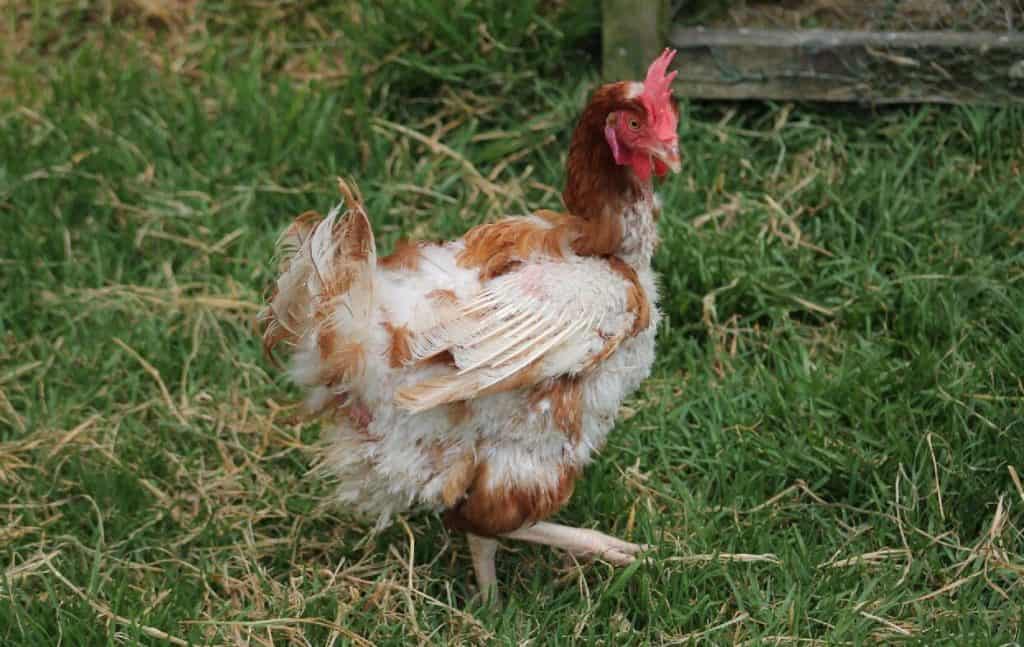
During the fall it is natural for chickens to start molting. You may notice that they start losing feathers. They will begin to look quite straggly, but they should still be in good health. They shed their older feathers to make room for healthy new plumage to see them through the colder months.
The molting process can take around 8 weeks for younger chickens and up to 12 weeks for older birds.
Growing new feathers takes a lot of protein. Chickens will use their available protein to grow these new feathers instead of laying eggs. They simply can’t do both at the same time. It’s important to support your flock during this time with specifically nutritious food.
Focus on providing calcium and protein as these are in high demand during the feather-growing season! If you can supplement their feed with other foods like berries and greens to help give them more vitamins. The extra nutritional support will help them become stronger and better layers once the molting process is finished.
If you take care to supplement your chicken’s feed during the molting season, you may notice they produce larger eggs, which should make you happy!
Chickens produce less eggs as they age
If you look after your chickens, they can live to be 10 years old or more. But like us, they slow down as they age. Once chickens are ready to begin laying eggs at around 20 weeks, they will produce their peak amount of eggs for 2-3 years. After this, it is natural to observe a decrease in production.
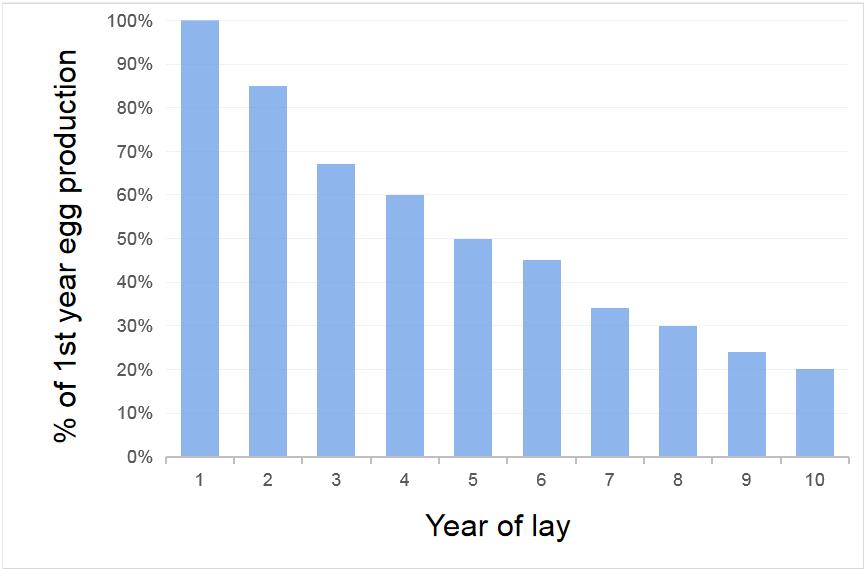
If you use the tips below, you may be able to encourage healthy, frequent egg laying for a longer span of time. If you want more eggs than you’re getting from your older girls, you may need to add younger layers to your flock to increase your egg numbers.
The wrong diet can slow egg production
You might think that a fat chicken is a happy chicken but that isn’t always true. If you overfeed your flock and they gain too much weight you will notice fewer eggs in your basket. Provide a balanced diet for them and allow plenty of room for them to roam during the day.
Chickens use around 20g of protein to produce an egg, so a ready supply will help. Calcium, phosphorus, vitamin D and fats are also necessary. Commercial layer pellets are available that offer the correct balance of nutrients.
Different feed formulations are available for chickens that are too young to lay (called grower or development pellets). The right mix will ensure more nutritious eggs with strong shells. Kitchen scraps and allowing your hens to forage also help diversify the diet.
Make sure your chickens have access to plenty of fresh water. Thirsty chickens can go off the lay very quickly and may take weeks to return to a reliable laying cycle.
You can also supplement your chicken’s food supply with herbs. Nasturtiums are said to be a laying stimulant that should help if your chickens aren’t laying eggs. Growing herbs in your chicken run or in the garden where the hens can access them is beneficial to them and can add flavor to your dinners at the same time.
Laying eggs away from nesting boxes
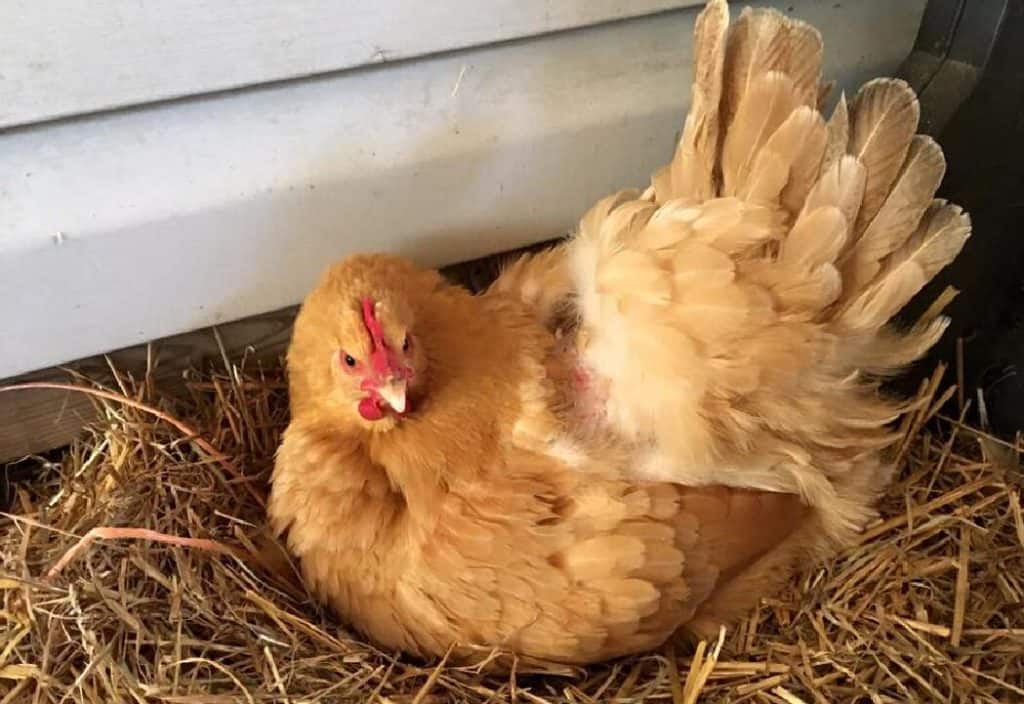
If you like to let your chickens roam around the yard, you might notice fewer eggs in your coop. This isn’t because the chickens have stopped laying eggs. It might be that your birds have found a more desirable place to lay their eggs.
Watch your chickens during the day to see where they spend their time. If a bird is consistently disappearing it may be laying eggs in a new spot. Look in cozy sheltered places like tall grass, bushes or shrubs. You may be surprised to find a stash of eggs tucked away in a quiet corner.
Encourage your chickens to lay in nesting boxes by having the right set up. There should be 1 nesting box to every 4 chickens, and they should be 18 inches off the ground to discourage pests. The boxes should be at least 12 inches wide to give the chickens enough room to lay comfortably without feeling vulnerable.
Your chickens might be broody
The natural breeding instincts of a chicken will kick in at some point during its lifetime. Your chickens may become broody and remain sitting on a clutch of eggs for long periods of time. This can happen if they don’t have access to a rooster to fertilize their eggs. The breeding confusion makes them sit on their eggs and refuse to get up.
Broodiness can also be triggered if you don’t collect the eggs every day. If a few are allowed to collect in a nesting box, the brooding instinct may be triggered. Remember a broody chicken will not lay eggs.
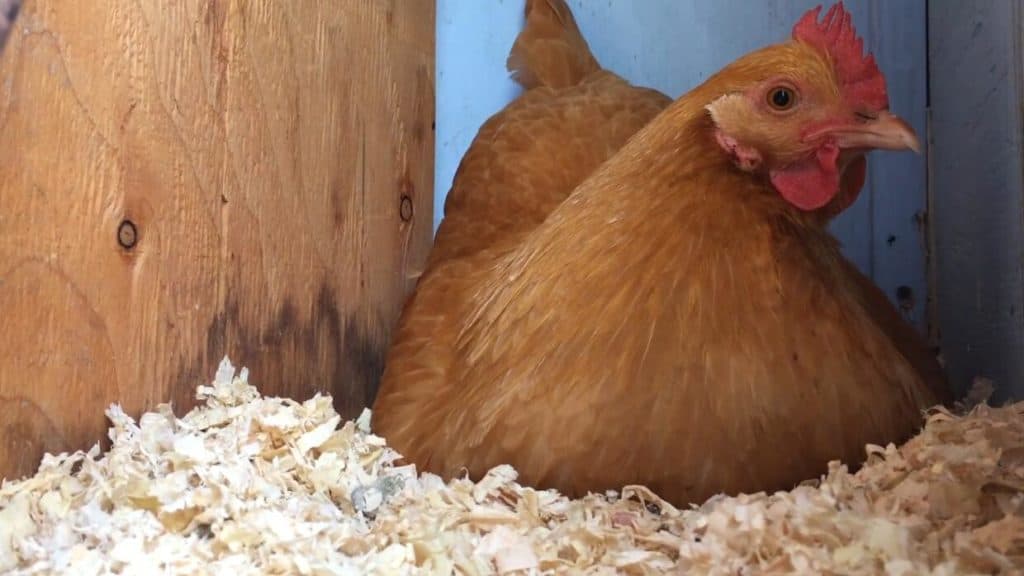
If you see fewer chickens in your yard during the day, check the coop. If your girl is sitting and refusing to get up, she’s probably broody. She’ll be putting her efforts into keeping her eggs warm to hatch, even though we know the eggs are unfertilized. It can take a few weeks for your hen to start laying again.
Pests, insects, mites and lice
Get up close and personal with your flock to check for visible mites or lice. If your chickens are blighted with bugs, they will often stop laying. Ticks and lice can give painful bites, which will deter your hens from spending time in the nesting boxes.
Some infestations can make your chickens very ill. Sick chickens won’t lay eggs. It’s best to avoid this by taking excellent care of their coop and nesting boxes. Regularly change the straw and nesting materials in the coop and give the area a good sweep if possible.
Avoid using commercial pesticides or surface sprays as you may accidentally poison your chickens! Instead include lavender and marigolds in your nesting boxes as they have natural insecticidal properties. Sage is antiparasitic.
If your chickens are suffering, take them to the vet or consult one about the best commercial treatments available. When they are healthy again you should see a return to a regular egg-laying schedule.
Stressed chickens won’t lay eggs
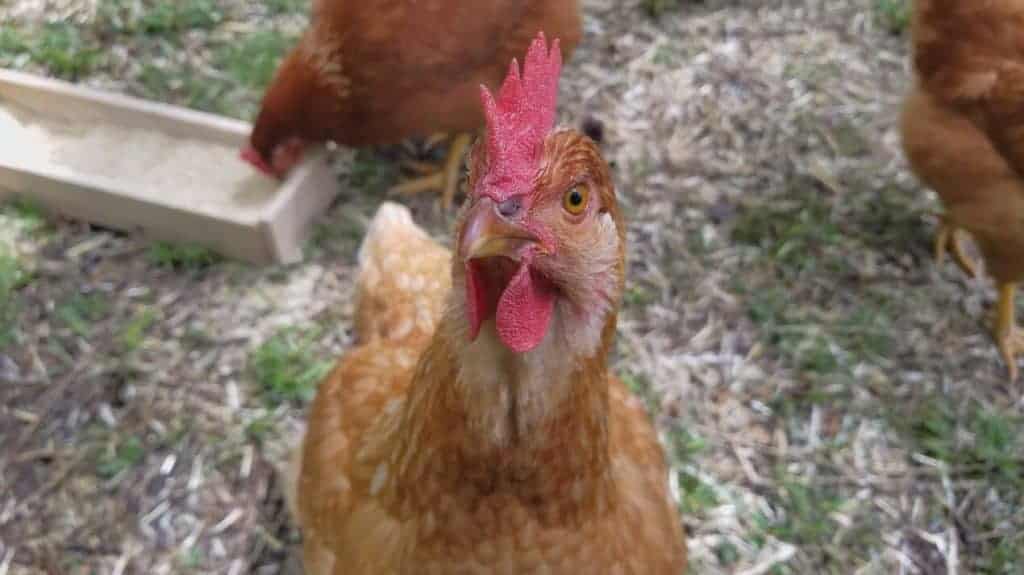
When we humans are stressed out it’s hard to concentrate on getting our work done. Your chickens are just the same. They can’t lay eggs if there are too many distractions or threats present. Chickens are quite timid, so loud noises from lawnmowers or children can be enough to put them off laying.
Dogs and predators like foxes or birds of prey can also threaten your egg supply. Keep your chickens in a quiet part of the yard and keep distractions to a minimum. Only visit the coop when you need to – don’t be tempted to tinker around in there too often.
Adding new chickens to the group can also be stressful and can lead to fewer eggs being laid until they are settled in.
Chicken Laying Tips
Here are my top tips for increasing egg production in your backyard chicken coop:
- Ensure your girls are getting enough sunlight
- Keep their nesting boxes clean and pest-free
- Give them the right balance of nutrients
- Create a peaceful environment for them to live in
Be patient with your flock. After all, they are living creatures with their own needs and hormonal cycles. They thrive on routine and a healthy diet but will naturally have quieter laying times during the year. Have you ever had problems with poor egg production in your coop? How did you solve it? I’d love to hear about your experiences in the comments below.

Joseph Hudson has been raising chickens for over 15 years. In 2018, he completed the Agriculture & Natural Resources program at Mt. San Antonio College. He currently raises over 1400 chickens on his 7.5-hectare farm. He keeps sharing his experience on raising healthy and happy chickens on Chicken Scratch The Foundry.
